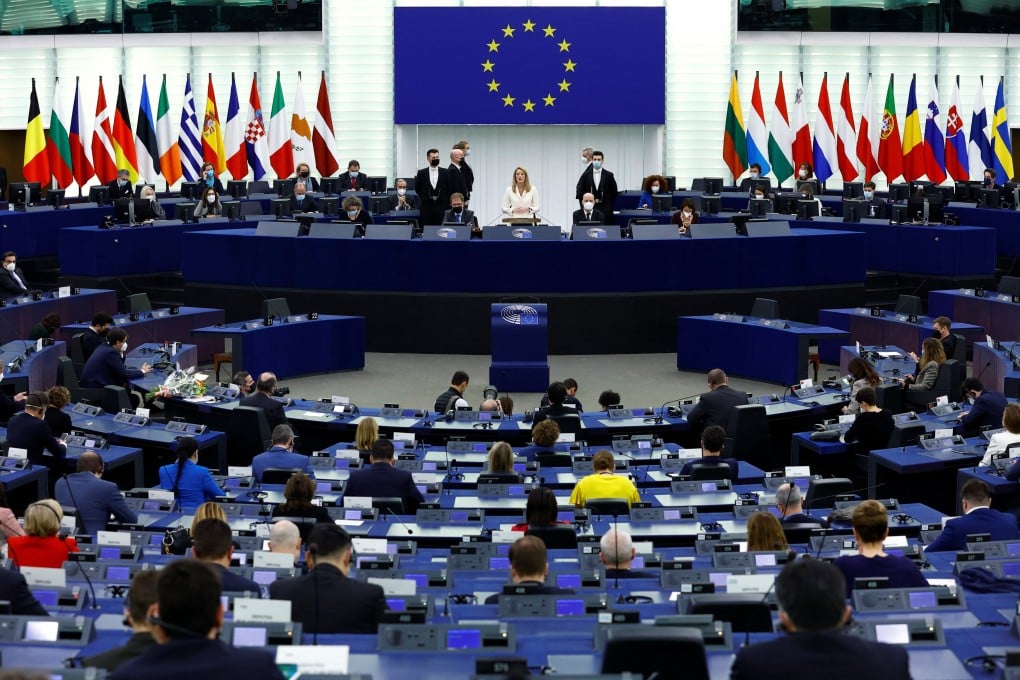Advertisement
EU set to renew sanctions on Chinese officials accused of human rights violations in Xinjiang
- Sanctions target four officials Brussels identified as architects of ‘large-scale surveillance’ of Muslim ethnic minorities in western region
- European Parliament to debate EU-China relations while pushing for listing of more Chinese officials
Reading Time:3 minutes
Why you can trust SCMP
83

Finbarr Berminghamin Brussels
The European Union is set to renew sanctions on Chinese officials it has accused of “serious human rights violations” in the western region of Xinjiang for another year.
The sanctions were first placed on four individuals and one entity in March 2019, and with the EU observing no improvement in human rights conditions in the region, they are likely to be extended without a debate in December, according to multiple diplomats familiar with the situation.
Ambassadors in the EU’s powerful Coreper II committee will discuss the sanctions as part of the bloc’s overall human rights sanctioning regime on November 30, after which the extension will be approved during a meeting of ministers from EU member states on December 5. Diplomats dealing with human rights issues okayed the extension on October 3.
Advertisement
This would mean the sanctions will be rolled over in March, two years after they first came into force and helped usher in an unprecedented period of turbulence in the EU-China relationship.
It marked the bloc’s first sanctions targeting Chinese officials since the aftermath of the bloody Tiananmen Square crackdown in 1989.
Advertisement
Advertisement
Select Voice
Choose your listening speed
Get through articles 2x faster
1.25x
250 WPM
Slow
Average
Fast
1.25x